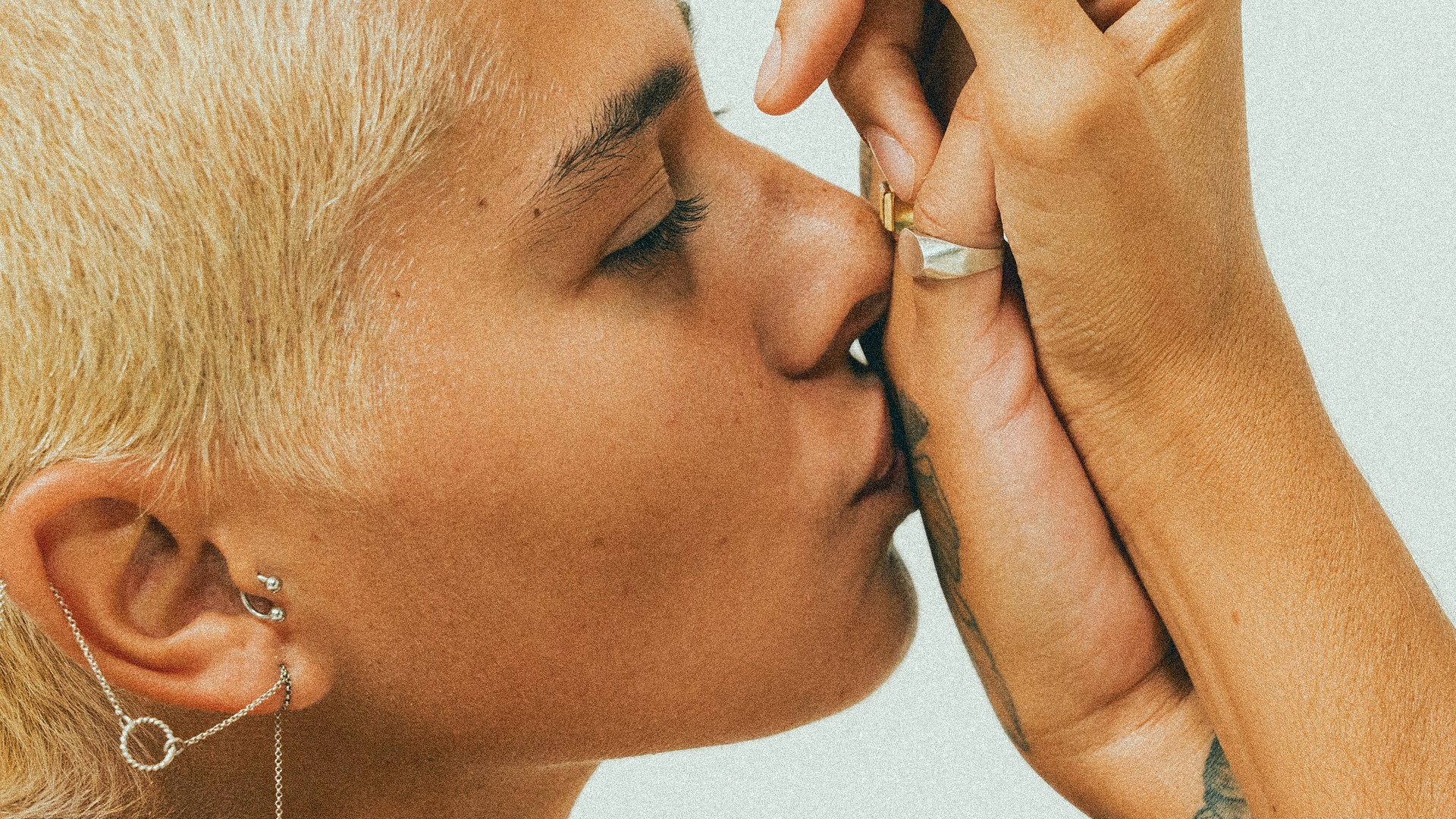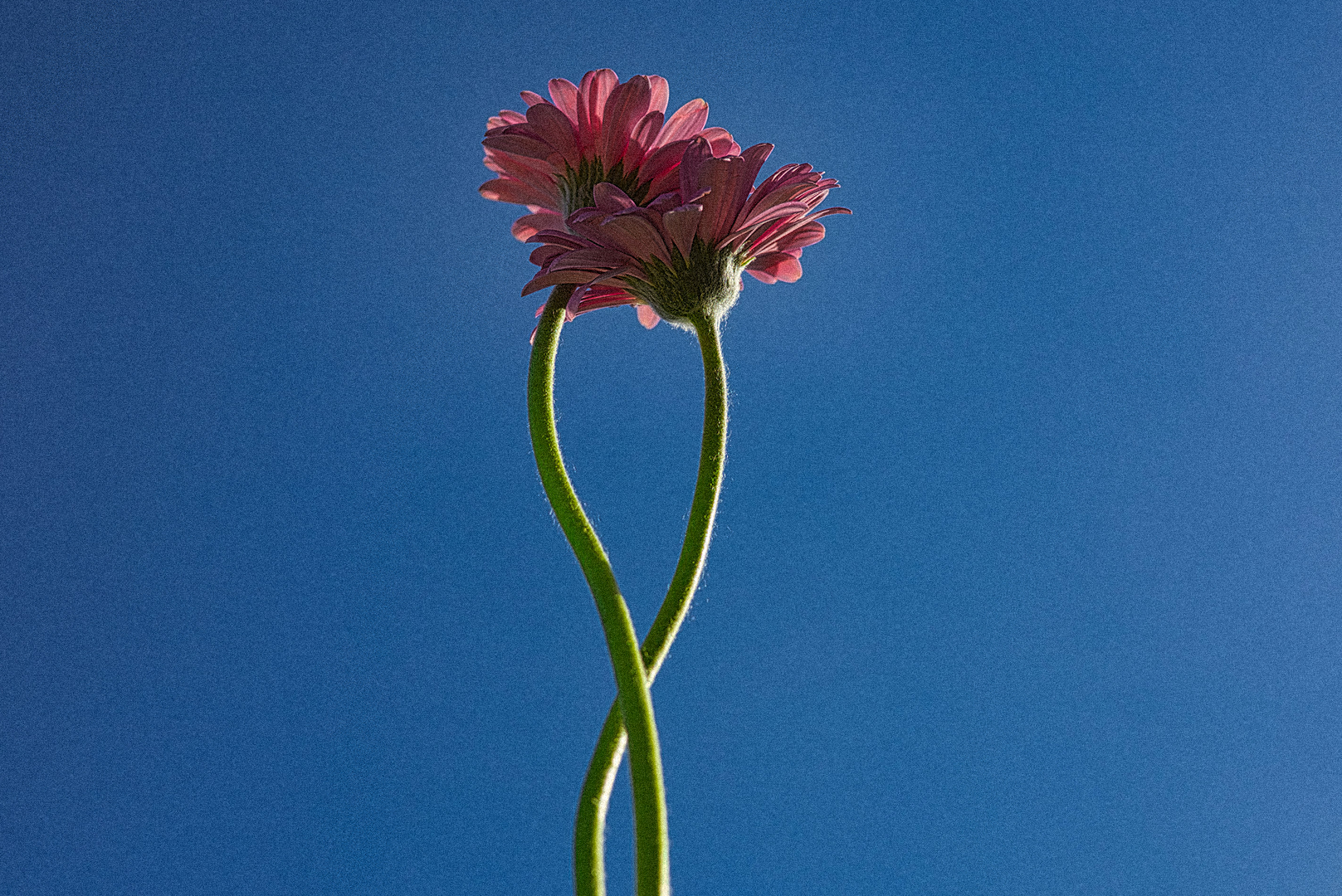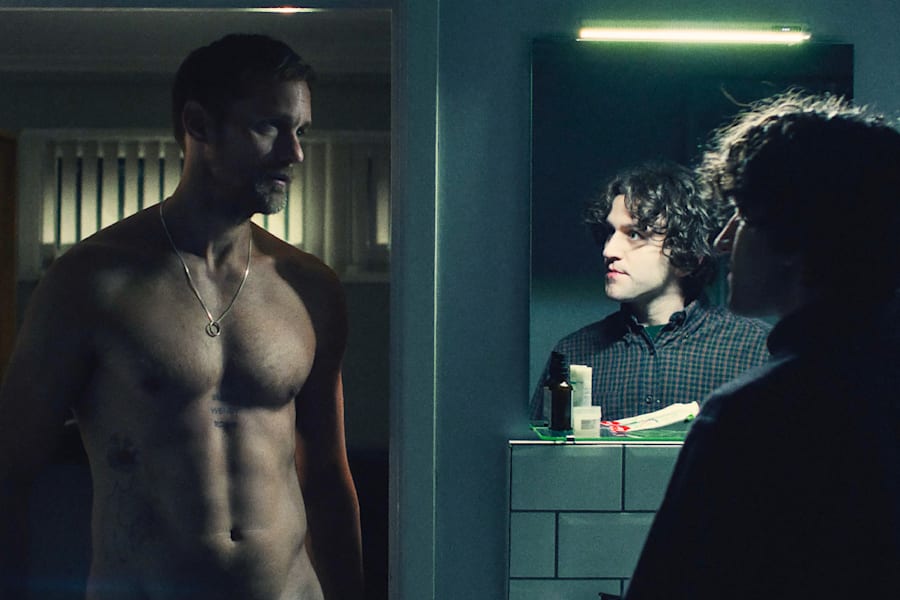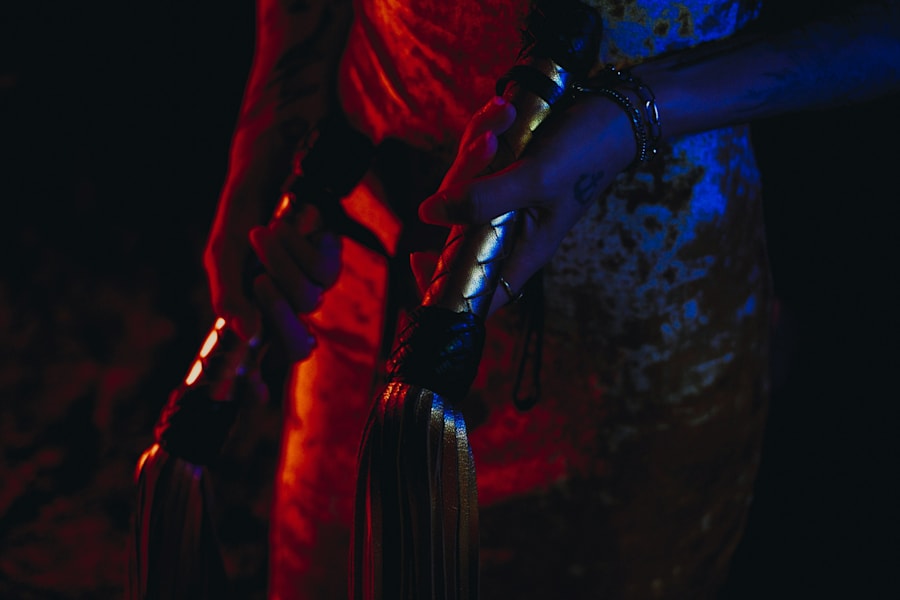Exploring the bi-cycle: understanding attraction and identity

Attracted to more than one gender but can't quite figure out why your preferences shift from time to time? You're not alone. This changing pattern of attraction is part of what's called the bi-cycle. It's a natural, normal experience for many bisexual+ people, though it's something that often gets misunderstood.
In fact, about 7.6% of U.S. adults identify as bisexual, according to a 2024 Gallup poll. But even with such a large community, bisexual people still face challenges like bi-erasure and compulsory heterosexuality (comphet). Bi-erasure happens when people dismiss bisexuality, often reducing it to a "phase" or believing that the person is "just confused." Comphet, on the other hand, is the societal "norm" and pressure that assumes everyone is or should be heterosexual.
One of the trickiest parts of being bisexual is the internal struggle to understand and make sense of your own attraction. The bi-cycle—the changing attraction to different genders—can make it even harder to recognize and describe your feelings. This confusion can leave people feeling isolated, second-guessing themselves, and potentially believing those outside opinions on their sexuality.
In this article, we'll break down what the bi-cycle is, what it means, and how to make sense of it. We'll also talk about how people dating bisexuals can better understand and support them along the way.
What's the bi-cycle?
The bi-cycle is a way of describing how bisexual attraction can shift over time—not always feeling equal, constant, or the same.
Bisexuality means being attracted to more than one gender, but that doesn’t necessarily mean those attractions are split 50/50. Some people might assume being bisexual means being equally attracted to men and women, but that’s not always the case.
For some, that equal split might feel true. But for many bisexual people, attraction isn’t a neat division—it’s not like slicing a pie in half. It might help to think of it as being 100% capable of attraction to more than one gender, even if that attraction varies over time or isn’t evenly distributed.
This is where the bi-cycle comes in. The shifting attraction that comes with being bisexual can make it feel like your feelings are constantly in motion, and not always in a way that makes sense to others—or even to yourself. It's this ebb and flow of attraction that can create a lot of confusion, but it's also a natural part of the experience for many bisexual folk.
Others may feel thrown off by these cycles. When those outside the community don't fully understand bisexuality, it might be easy to assume these shifts mean something is wrong—often leading to harmful stereotypes like "bisexuals are confused" or "they can't make up their minds." But the reality is that sexual attraction isn't linear, and it can fluctuate for all sorts of emotional, social, and psychological reasons.
One person shared their experience on Reddit: "I honestly just figured out the bi-cycle was a thing like last week. Before, I thought I had some unnamed sexuality only I experienced… It was like fighting myself over internalized homophobia or pretending to be straight… Until I learned this was a common experience, I thought I was just quirky for pretending to like women." Shifting attractions aren't a sign of confusion, but part of a valid bisexual experience.
Experiencing the bi-cycle
Living through the bi-cycle can be challenging, especially when external pressures like bi-erasure and comphet are at play. These societal expectations can make it hard for bisexual people to fully accept their shifting attractions, sometimes leading to self-doubt or the fear that they're not "really" bisexual.
Bi-erasure often shows up when people invalidate bisexuality, especially if someone is in a relationship with one gender. For example, if a bisexual person feels more drawn to one gender at a particular moment, they might hear something like, "Are you really bisexual if you're with a man right now?" If you're a woman, you might feel like people assume that you’re straight. If you're a man, it might make you feel like you're being pushed into the label of gay. These kinds of comments can make someone question their feelings and add to the confusion, especially during certain phases of the bi-cycle.
Comphet plays a big role here, too. When someone in a heterosexual relationship feels attracted to the same gender, the pressure to fit into heteronormative expectations can heighten the emotional turmoil tied to the bi-cycle. In fact, PunSpud shared: "I'm bisexual, but hetero-romantic and happily married. When the cycle hits, my attraction to women goes through the roof, and it's like I'm obsessed. I feel guilty and try to hide it from my husband, because I feel like it's not fair to him, but damn, it hits me hard." That emotional back-and-forth is made even more complicated by the pressure to explain or justify what you're feeling. As Stefanie C, 33, shared: "I’ve always been instantly attracted to women, but my attraction to men comes in waves. Sometimes I forget I even find men attractive until something reminds me. Being in a hetero relationship, those shifts can feel confusing. I love my partner, but when I feel that pull in another direction, it can stir up guilt or self-doubt. I’ve learned to stay quiet about it because past experiences made me feel like I had to prove or defend my sexuality."
Adding to this perspective, Owlboy63 shares: "I'm only romantically attracted to women but sexually attracted to both men and women. I am currently in a relationship with a girl I'm absolutely in love with, and I can tell you that my attractions do still shift week to week or every few weeks. But because of the strong relationship I have built with my current girlfriend and the fact that I am not romantically attracted to men, my feelings toward my girlfriend do not change with my general attraction. I do not lose any sexual feelings for her just because I'm more attracted to guys at a certain point. This may just be me, I may be lucky like this, but that's my experience."
Another experience shared by rganother highlights a different side of this struggle: "It's always been a problem for me. I am romantically oriented towards women and sexually mostly oriented towards men, so when I'm in a relationship with a woman, I'm deeply fulfilled emotionally but sexually frustrated, and when I'm with a man, I'm physically satisfied but emotionally empty and frustrated. I'm middle-aged now and have had relationships with both genders but have never resolved this problem. I'm thinking about maybe experimenting with polyamory, even though I'm really a one-at-a-time person when I'm actually with somebody." 
The duration and phases of the bi-cycle
The bi-cycle is real, and for a lot of people, it's just part of being bisexual. Maybe you go through a phase where you're mostly into one gender, and then a few weeks or months later, it shifts, and your focus moves somewhere else. Sometimes, it feels like you've ”gone off” of one gender while your attraction to another is so glaringly obvious. You might even experience different types of attraction and preferences, for example, being romantically attracted to one gender but being more physically attracted to another. These phases can last days, weeks, months, or even years.
Dr. Jessica O'Reilly, a sexologist, has worked with many clients who experience this fluidity in their sexual preferences. She's noticed that lots of people, especially women, report their attractions changing with their menstrual cycles. For some, their interest in certain genders or types of relationships can shift depending on where they are in their cycle.
One of O'Reilly's cis male clients reported feeling attracted to men only when he was dealing with a lot of stress at work. One of her pansexual clients found herself most attracted to all genders during her period but less so during ovulation. These shifts can happen for all kinds of reasons—desires, wants, needs, life events, trauma, emotional states—or for no reason at all. Sometimes, you just like who you like.
O'Reilly says, "I'd like to identify patterns from some of the anecdotal evidence I've observed, but it's so varied that I'm not sure that I can." This goes to show just how unique and individual the bi-cycle can be. Each person's experience is different.
The whole thing can feel a little overwhelming sometimes, but you're definitely not alone. Here are a few experiences shared by people on Reddit that highlight how the bi-cycle can play out in real life:
One Redditor, jdwill1991, put it like this: "I mostly prefer women, and am currently dating a wonderful one. But the cycle always rears its head and has me attracted to guys for a while. It's frustrating, but it always passes… then comes back… then passes again."
Another Redditor, Mycatdoescrimes, shared: "Struggling with the same!! I swear I've been stuck on one end of the attraction spectrum for like 2 years now and I keep thinking 'am I lesbian?' until I see a hot guy, then I breathe a sigh of relief." This speaks to how long phases of attraction to one gender can lead to self-doubt.
While Deadliestcrotch offered a different but equally valid perspective: "For me, I never totally lose attraction to one gender across the board, it's more that my interest in one or another peaks for a bit, like the urge to listen to one song on a playlist over the others or a craving for a certain food that lasts longer than a single meal."
The impact of the bi-cycle on relationships and identity
The bi-cycle doesn't just shape who we're attracted to—it can also affect how we experience and move through relationships. For bisexual people, especially those in relationships, these shifts in attraction can feel confusing and overwhelming. It can raise questions like, Is this normal? Is something wrong with my relationship? Am I still attracted to my partner? Does this change who I am or what I want?
One of the toughest parts about the bi-cycle is the pressure it creates around identity. When society expects people to "pick a side," it can feel like you're constantly having to prove your bisexuality—especially if you're in a monogamous relationship where others assume your attraction is fixed.
This pressure can be exhausting. Flanders and colleagues (2017) found that many bisexual people feel like they need to demonstrate their bisexuality through behavior just to be taken seriously. And if your attractions shift—or even just quiet down for a while—it can start to feel like you're not doing your identity "right."
That's why self-validation matters so much. Attraction doesn't disappear just because it's not front and center all the time.
Jasmine, 31, who identifies as both bi and pansexual, puts it this way: "I wish people understood that when you get into a relationship, in my case, with a man, it doesn't stop me being bi or pan. I'm not now exclusively straight because I'm with a man, and it certainly doesn't stop my attraction to people of other genders. When a straight person gets into a relationship, they don't suddenly stop being attracted to any other man or woman on the planet, and that's the same for me, except for me, it's both."
This is a big reason why the bi-cycle can be emotionally tricky—it doesn't mean someone is confused or secretly "leaning" one way. It's just part of how attraction works for some people. It ebbs and flows. It can intensify, soften, shift, or surprise you—and all of it is still valid.
Abigail H, 30, who identifies as not straight and is in a relationship with a straight man, explained: "I definitely go through phases of being interested in women and non-binary people more than men, and when we—I—experience hetero assumptions, I can find myself doubling down more on my attraction to other genders."
This instinct to push back against being boxed in or misread is a common thread among bi+ people. It’s not about needing to prove anything—it’s about holding onto the full truth of who you are, even when others try to shrink it down.
Support and resources for navigating the bi-cycle
Navigating the bi-cycle can feel like a solo mission sometimes, but it really doesn't have to be. Whether you're the one experiencing those shifts in attraction or you're in a relationship with someone who is, having a safe space to talk things through, get perspective, or just feel seen can make all the difference.
Here are some ways to find that support—along with practical tips for managing fluctuating attraction and keeping your relationships (and sense of self) steady through it all:
Talk about it early and often
You don't have to wait until things feel confusing or overwhelming to start the conversation. Sharing how attraction works for you—whether it shifts a little or a lot—can help your partner understand you better and build trust early on.
Check-in with yourself, not just your partner
If you're feeling guilt, shame, or doubt during certain phases of your bi-cycle, pause and ask where those feelings are coming from. Sometimes they're not really yours—they're picked up from societal pressure or expectations.
Know that you don't have to "prove" anything
There's no "correct" balance of attraction or behavior that makes someone bisexual "enough." If you've only dated one gender but are attracted to other genders, you're still bisexual. If you haven't dated or been intimate with anyone but are attracted to multiple genders, you're still bisexual. If you're dating someone long-term, whether you're in a monogamous relationship or not, your identity is still valid. You don't owe anyone proof of who you are.
Create space for honesty, on both sides
It's okay to say, "I'm figuring this out," or "My feelings are shifting a bit right now." And it's also okay for your partner to feel unsure or ask questions. This is about mutual understanding, not having all the answers.
Connect with others who get it
Sometimes, the best kind of support is that which comes from people who've been through something similar. Online forums, local LGBTQ+ groups, or even just a trusted bi friend can offer the kind of reassurance and perspective that's hard to find elsewhere. Here are a few places to start:
The Trevor Project—Understanding Bisexuality: A great resource for young LGBTQ+ people, with accessible info and 24/7 support.
LGBT Foundation: Offers support services, mental health resources, and community programs for LGBTQ+ individuals in the UK and beyond.
Stonewall: One of the leading LGBTQ+ rights organizations in the UK, with excellent educational resources and support links.
Reddit's r/bisexual: A huge community where people share personal stories, questions, and advice about all things bi-related—including the bi-cycle.
Reach out to friends, chosen family, or a therapist
Sometimes you just need to talk it through with someone you trust, whether that's a close friend, a sibling, or a therapist who understands LGBTQ+ experiences. Even just saying things out loud can bring clarity. And the right listener won't try to "fix" how you're feeling—they'll remind you that you're not alone, and there's nothing wrong with the way you feel.
Push back against bi-erasure when you can
Sometimes, people don't realize the impact of what they're saying—whether it's a stereotype, a joke, or an offhand comment. People can be ignorant without meaning to be, or they just might not know any better. A simple correction, like "I'm bi, actually" (a la Nick Nelson from Heartstopper), gives people a chance to listen, learn, and correct their language and behavior in the future.
The "bi-cycle" is a totally normal part of being bisexual, and it's nothing to worry about. These shifts in attraction don't make you any less bi, they just show how fluid and complex our feelings can be. It's all part of the journey.
If you're navigating the bi-cycle, just know you're not alone. There's a whole community of people onFeeld who get what you're going through. It's a space where you can connect with like-minded individuals in a safe, inclusive environment. And having conversations about your experiences—whether with friends, family, a partner, or even a therapist—can help you feel more at ease with your attraction and embrace it as a beautiful part of who you are.


